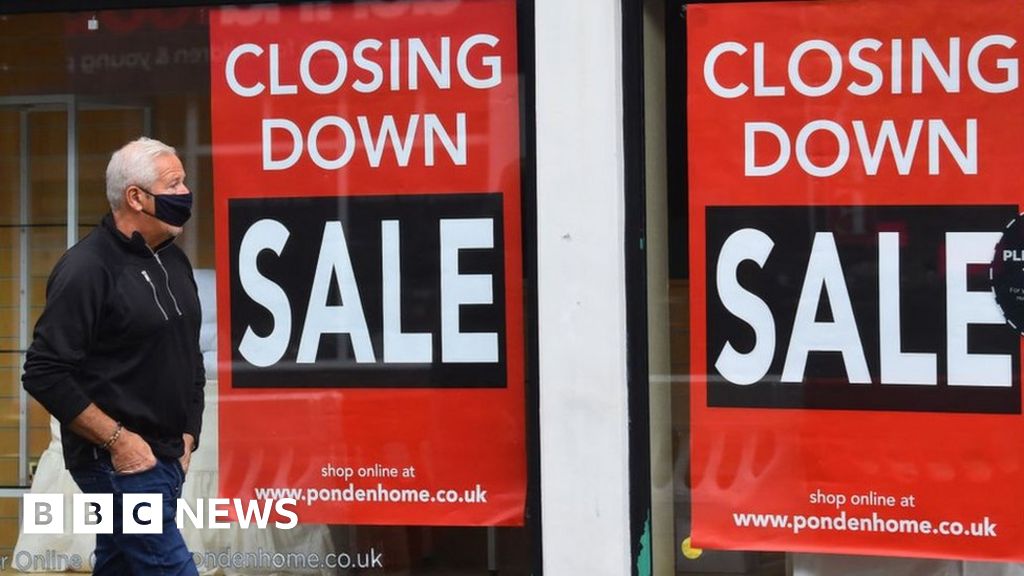brad465
Established Member
Economic implications of the pandemic have come up in other threads recently so think a new thread is useful for this, as beyond how debt might be paid off, this hasn't really had its own discussion in recent months.
Job losses and public debt mounting up have happened and will continue to happen with their associated consequences. Other possible consequences I can think of that can up that may not be being talked about much include:
-Large number of business bankruptcies allowing larger firms to become monopolies, increasing prices and controlling supply of essential goods.
-Hyperinflation: the Quantitative Easing so far by the Bank of England and other Western Central Banks as already caused problems through inflating markets and assets (creating bubbles that could burst anytime), and since the pandemic this has accelerated to be more or less equal to the amount the Government has so far borrowed in this country since March. If they're not careful there may come a point where trying to inflate away our debt has disastrous consequences, like that seen in Zimbabwe, or Weimar Germany.
-Debt, both private and public: Again Bank of England policy has for too long encouraged borrowing over saving and allowed private debt to build-up, I've seen figures that suggest all debt in this country equates to over 200% of GDP, with private debt also at record highs. This would likely restrict spending potential, causing a feedback loop of decreased tax revenue from sales and jobs that require spending to create and further increase debt. The same bank said last week they expect a spending spree once this is all over, but to me this seems optimistic for many reasons, especially as ending restrictions isn't in their control.
The above policies/behaviour were making me and others believe another financial crisis was imminent at the end of the last decade, based on debt and inflated bubbles. While that has happened with the pandemic response, this was not the sort of crisis in question, where in fact these policies have only been exacerbated in the pandemic, such that another financial crisis could well be even worse because of it.
What I think we should be doing is going for a complete restructure of the economy, both in industry diversity and aiming for the future. The service sector dominance is clearly showing up its weaknesses, and when a central bank has to use last resort measures like QE and keeping interest rates very low for over a decade, the system is clearly broken and needs replacing, not plastering over.
Job losses and public debt mounting up have happened and will continue to happen with their associated consequences. Other possible consequences I can think of that can up that may not be being talked about much include:
-Large number of business bankruptcies allowing larger firms to become monopolies, increasing prices and controlling supply of essential goods.
-Hyperinflation: the Quantitative Easing so far by the Bank of England and other Western Central Banks as already caused problems through inflating markets and assets (creating bubbles that could burst anytime), and since the pandemic this has accelerated to be more or less equal to the amount the Government has so far borrowed in this country since March. If they're not careful there may come a point where trying to inflate away our debt has disastrous consequences, like that seen in Zimbabwe, or Weimar Germany.
-Debt, both private and public: Again Bank of England policy has for too long encouraged borrowing over saving and allowed private debt to build-up, I've seen figures that suggest all debt in this country equates to over 200% of GDP, with private debt also at record highs. This would likely restrict spending potential, causing a feedback loop of decreased tax revenue from sales and jobs that require spending to create and further increase debt. The same bank said last week they expect a spending spree once this is all over, but to me this seems optimistic for many reasons, especially as ending restrictions isn't in their control.
The above policies/behaviour were making me and others believe another financial crisis was imminent at the end of the last decade, based on debt and inflated bubbles. While that has happened with the pandemic response, this was not the sort of crisis in question, where in fact these policies have only been exacerbated in the pandemic, such that another financial crisis could well be even worse because of it.
What I think we should be doing is going for a complete restructure of the economy, both in industry diversity and aiming for the future. The service sector dominance is clearly showing up its weaknesses, and when a central bank has to use last resort measures like QE and keeping interest rates very low for over a decade, the system is clearly broken and needs replacing, not plastering over.

